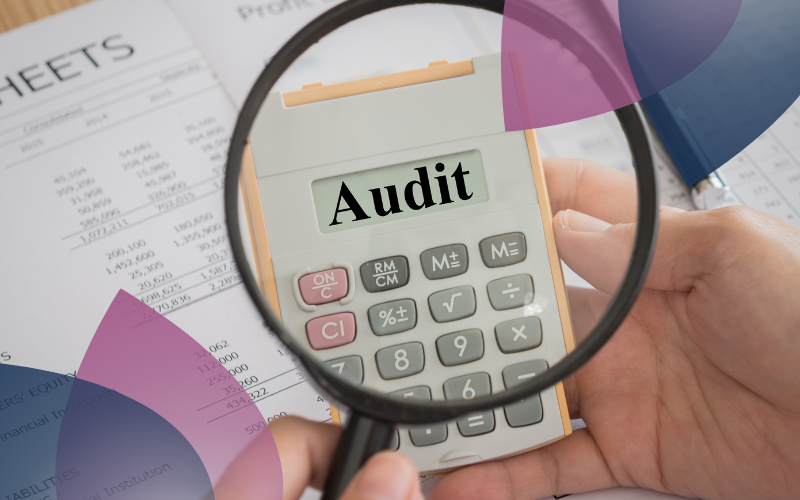
If you’re already running a business as an NDIS provider or you’re considering starting one, it’s important to understand the NDIS audit process. Operating an NDIS organisation is a great responsibility, and you must adhere to strict rules and regulations.
All NDIS providers have to meet the NDIS Practice Standards, which are easily accessible on the NDIS Commission website. These policies must be implemented by all NDIS care providers in their operations, or they will fail an audit.
NDIS-registered providers are typically audited every 18 months. If an auditor finds any major non-conformities, additional audits must be undertaken. While failing an audit isn’t the end for a provider, it is time-consuming, disruptive, and expensive.
Our guide will explore the NDIS audit requirements, what to expect, and how software can make the process easier. We’ll also cover different types of audits, such as quality audits and verification audits.
Understanding The NDIS Auditing Process
NDIS providers are required to undergo various auditing processes—from when they apply with the NDIS Commission to long after acceptance, when they undergo routine audits.
These audits are important to ensure that the providers adhere to the NDIS’s rules and regulations. They also act as a quality check to ensure that the services are high-quality and safe for participants.
The NDIS conducts quality audits, verification audits, certification audits, and mid-term audits. These audits are conducted for different reasons and have different requirements for passing.
For instance, verification audits are required for providers that deliver lower-risk or lower-complexity support and services. During a verification audit, the provider must show relevant qualifications, experience and expertise, and policies regarding incident and risk management.
What happens during an NDIS audit?
In an NDIS audit, the NDIS Commission sends an audit team to evaluate an NDIS Provider. This evaluation includes checking how well the Provider works and whether it follows the NDIS rules and quality standards.
The auditing team will also check on how the Participants feel about the support they get from the Provider and ensure their records/information are accurate and adhere to regulations. Auditing helps to protect the rights and safety of NDIS Participants.
The exact specifics of what the auditor or audit team will check will depend on the type of audit. The team sent out to conduct an audit is independent, so they don’t work for the NDIS Provider or the NDIS commission—this ensures no conflict of interest.
The audit team usually visits the Provider to examine paperwork, computer records, and files. They also talk to staff, managers, and NDIS Participants.

The Requirements To Meet In An NDIS Audit
The requirements to pass an NDIS audit will differ depending on the type of audit. For example, auditors evaluate and look for different items in a verification audit than in a certification audit. We’ve gathered information from the NDIS Commission website below for the different types of audits and their requirements.
Quality audits
To apply for or renew registration with the NDIS Commission, all Providers have to go through a ‘quality’ audit against the NDIS Practice Standards. An independent and approved quality auditor will assess your organisation against the components of the NDIS Practice Standards.
After this, your organisation will also go through either a ‘verification’ or ‘certification’ quality audit, depending on the size and scope of your services and business. The NDIS Commission will advise you on the type of audit required.
For a quality audit regarding applying or renewing registration, it’s the responsibility of the applicant to engage with an approved quality auditor—the NDIS Commission doesn’t do it for you.
Verification audits
A verification audit is typically for Providers that deliver lower-risk or lower-complexity services. In a verification audit, the Provider must show evidence of the following:
- relevant qualifications;
- experience and expertise;
- complaints management processes/policies;
- incident and risk management processes/policies.
Certification audits
A certification audit is usually required for Providers that offer more complex or higher-risk services. In a certification audit, the organisation is audited against the NDIS Practice Standards and may also include assessments against modules relevant to the support they offer.
Assessments that include core capabilities may audit:
- risk management;
- delivery of support;
- delivery environment;
- governance and operational management.
NDIS Providers who deliver services within the High-Intensity Daily Personal Activities registration group will also be assessed against the High-Intensity Support Skills Descriptors.
In addition to an assessment, the auditor will conduct document reviews, site visits, and interviews with workers and NDIS Participants.
Mid-term audits
Most NDIS Providers are registered for three years. As a condition of their registration, any registered Provider who delivers higher-risk and complex support requiring a certification audit is required to undergo mid-term audits.
A mid-term audit has to occur no later than 18 months after the beginning period of registration (unless otherwise specified by the Commissioner). The report must also be given straight to the Commissioner as soon as possible after an audit is done.
How NDIS Software Ensures The Audit Process Runs Smoothly
As an NDIS business owner, ensuring that all your record-keeping and compliance is up-to-date can be overwhelming, especially if it’s all done manually. NDIS software can assist with documentation and automating aspects of your business to help you stay compliant.
Specialised software, like CareMaster, offers a range of administrative solutions built into the app, like secure storage of documentation, formatting documents for compliance with NDIS, and tracking finances for an audit.
If you’re looking to make every audit a breeze, specialised software is a good option. Along with documentation and administrative features, most NDIS software can also monitor, track, and securely store participant, staff, and business data—which is instrumental in ensuring the audit process is as stress-free as possible.

Ensure Your Next NDIS Audit Runs Smoothly With CareMaster’s End-To-End Software
If you want to make sure your next NDS audit runs smoothly, our CareMaster software provides end-to-end services for all your administrative needs, including audits. Book a free demo today and see the capability of our software for yourself.
CareMaster is a cloud-based online software designed to cover every aspect of running an NDIS business as a provider. It also provides functionality to link directly to support workers and participants engaging with your service.
An NDIS audit comprehensively checks the Provider’s records, qualifications, and compliance. With our software, you can keep all your documentation in one place, easily exportable and formatted in the event of an audit.
Along with built-in support for outcome and progress records and managing all your incident reports, CareMaster also stays on top of all your finances. It can track all your expenses, receipts, invoices, and more in the case of a financial audit.
Our software is designed to meet the requirements of NDIS providers of all sizes and at all stages of growth. We also offer various pricing packages with the choice of monthly or annual billing to suit all budgets.

